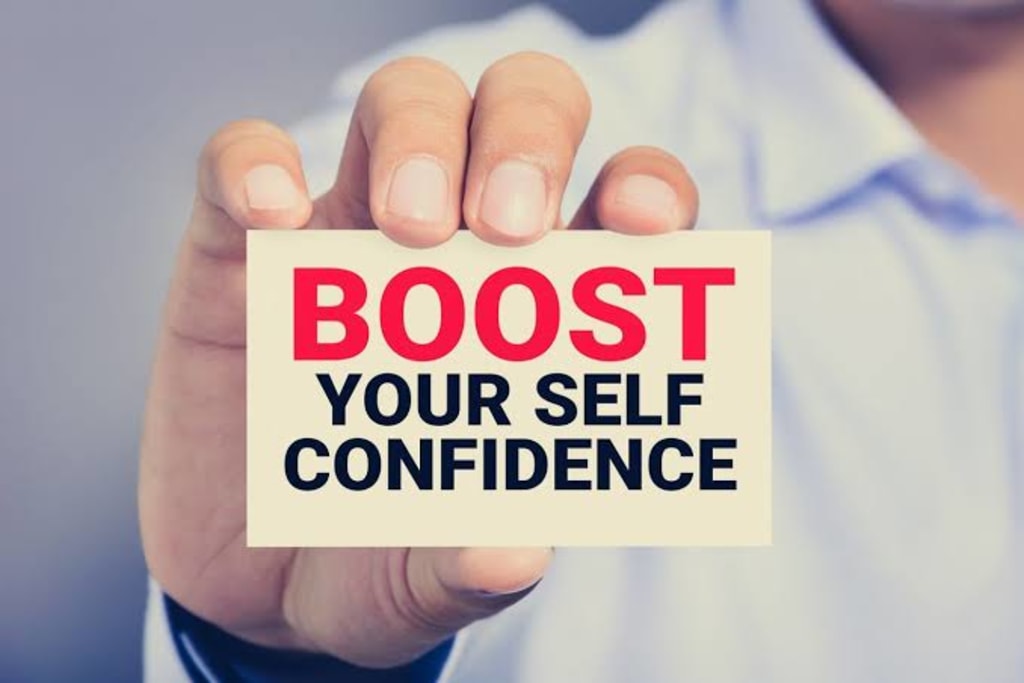How to improve your self confidence
Increase self confidence

Improving self-confidence is a gradual process that involves building a positive self-image and developing a strong belief in your abilities and worth. Here are some detailed notes on how to improve self-confidence:
1. Recognize and Challenge Negative Self-Talk:
- Become aware of negative self-talk: Pay attention to your inner dialogue and identify self-critical or self-limiting thoughts.
- Challenge and reframe negative thoughts: Replace negative thoughts with positive and affirming statements. Practice self-compassion and remind yourself of your strengths and accomplishments.
2. Set Realistic and Achievable Goals:
- Break big goals into smaller steps: Set realistic and achievable goals that align with your values and aspirations. Breaking them down into smaller tasks makes them more manageable and allows for a sense of progress and accomplishment.
- Celebrate achievements: Acknowledge and celebrate your successes, no matter how small. Recognizing your progress boosts self-confidence and motivates you to continue taking steps forward.
3. Focus on Strengths and Skills:
- Identify your strengths: Take inventory of your skills, talents, and qualities. Recognize what you excel at and what makes you unique.
- Develop and refine your skills: Invest time and effort in developing your strengths further. Practice and seek opportunities to improve and showcase your abilities.
4. Practice Self-Care and Presenting Yourself Well:
- Take care of your physical health: Prioritize self-care by engaging in regular exercise, eating nutritious foods, and getting enough restful sleep. Taking care of your physical well-being positively impacts your confidence levels.
- Present yourself well: Dress in a way that makes you feel confident and comfortable. Pay attention to personal grooming and hygiene, as feeling good about your appearance can boost self-confidence.
5. Expand Your Comfort Zone:
- Take calculated risks: Step out of your comfort zone and take on new challenges. Start with small steps and gradually expand your boundaries. Each success will enhance your self-belief and confidence.
- Embrace failure as a learning opportunity: Understand that setbacks and failures are part of growth. Instead of letting them discourage you, view them as valuable lessons and opportunities for improvement.
6. Surround Yourself with Supportive People:
- Seek positive relationships: Surround yourself with supportive and encouraging individuals who believe in you and your capabilities. Their belief in you can bolster your self-confidence.
- Limit exposure to negative influences: Minimize contact with people who undermine your self-confidence or constantly bring negativity into your life. Surrounding yourself with positivity can help maintain a healthy self-image.
7. Practice Self-Validation and Acceptance:
- Embrace self-acceptance: Accept yourself as you are, embracing both strengths and areas for growth. Recognize that everyone has strengths and weaknesses.
- Validate your own worth: Remind yourself of your value and inherent worthiness. Acknowledge your efforts, progress, and achievements, and recognize that you are deserving of confidence and self-belief.
8. Seek Professional Help if Needed:
- If self-confidence issues persist and significantly impact your daily life, consider seeking support from a mental health professional. They can help you explore the underlying causes and provide guidance and strategies tailored to your specific needs.
Remember, building self-confidence takes time and patience. Be kind to yourself throughout the process, celebrate your progress, and embrace the journey of self-discovery and growth.
Certainly! Here are additional notes on how to improve self-confidence:
9. Practice Self-Compassion:
- Be kind to yourself: Treat yourself with compassion and understanding. Acknowledge that nobody is perfect, and it's okay to make mistakes or face setbacks.
- Practice self-acceptance: Embrace your flaws and imperfections as part of your unique self. Recognize that self-worth is not based on achieving perfection but on accepting and loving yourself as you are.
10. Visualization and Affirmations:
- Visualize success: Imagine yourself accomplishing your goals and engaging in confident behaviors. Visualize positive outcomes and rehearse them in your mind.
- Use affirmations: Repeat positive affirmations about your capabilities, worth, and confidence. Affirmations can help rewire your thinking patterns and reinforce positive self-beliefs.
11. Continuous Learning and Personal Development:
- Seek knowledge and skills: Engage in continuous learning and pursue activities that expand your knowledge and abilities. Acquiring new skills and knowledge boosts self-confidence and provides a sense of accomplishment.
- Take on challenges: Volunteer for tasks or projects that stretch your abilities. Stepping out of your comfort zone and embracing challenges enhances your self-confidence and resilience.
12. Practice Assertiveness:
- Express yourself: Practice assertiveness in your communication. Clearly and respectfully express your thoughts, feelings, and boundaries. Assertive communication helps you feel more in control and confident in your interactions.
13. Celebrate Personal Progress:
- Track your achievements: Keep a record of your accomplishments, no matter how small. Reflect on your progress regularly to remind yourself of how far you've come.
- Reflect on past successes: Remember times when you have overcome challenges or achieved success. Use these memories as reminders of your capabilities and resilience.
14. Embrace Failure as a Growth Opportunity:
- Learn from setbacks: Instead of seeing failure as a reflection of your worth, view it as an opportunity for growth and learning. Analyze what went wrong, identify lessons, and use them to improve and grow.
- Develop resilience: Cultivate resilience by bouncing back from failures and setbacks. View them as temporary obstacles and maintain a positive mindset, knowing that you have the ability to overcome challenges.
15. Practice Good Posture and Body Language:
- Stand tall: Maintain good posture and an open body position. Research suggests that adopting confident body language can impact your mindset and increase self-assurance.
- Make eye contact: When interacting with others, maintain eye contact as it conveys confidence and attentiveness.
Remember that building self-confidence is a personal journey, and it's important to be patient and kind to yourself throughout the process. Celebrate even small steps forward and embrace the progress you make. With dedication and practice, you can continue to develop and strengthen your self-confidence.
About the Creator
Ibrahim ashraf
nothing special just for public figure






Comments
There are no comments for this story
Be the first to respond and start the conversation.